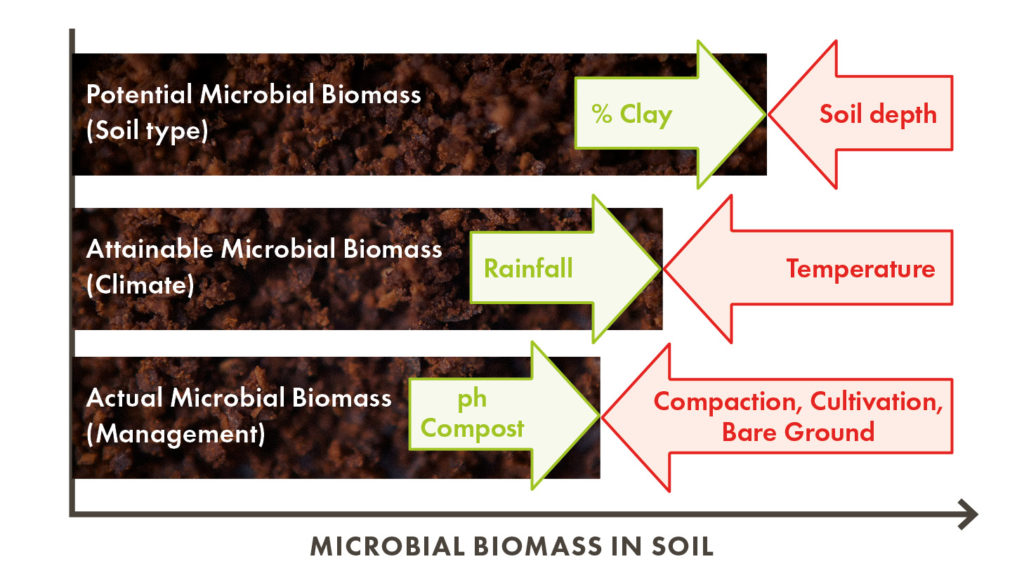Bioguide #1
Soil types and the potential for microbial life
When we buy a rural property what are we getting? Soil.

How soil biology differs across soil types and what you can do about it.
Understanding how soil types interact with climate and location – what grape growers call terroir – and the makeup of your soil – the balance between chemistry (minerals etc) and biology (microbes) – is critical to your long-term growing success.
Different soil types have different microbial potentials – the maximum number of microbes that can live in that soil in perfect conditions. This base soil type has a profound impact on the soil microbes that can potentially live in it, as well as how that soil is managed.
Clay soils for example, have a higher microbial potential than sand as there are more places for the microbes to live, while deep soils can have more microbes than shallow soils.
The climate of your location will also affect the microbes in your soil. Rainfall is important as microbes need water to thrive and will die off in droughts. Microbes also grow in a narrow temperature range; they will not grow at very low temperatures and die off in high temperatures.
How the soil is managed also affects the soil type and microbial population. This is where you as the grower influence and manage the soil biology through a variety of land management practices. Your practices can have negative or positive effects:
Negative practices include:
- Compaction from machinery creates anaerobic soils which limit microbial populations
- Bare land limits microbes as there is no plant material for them to live on and microbes near the soil surface are exposed to UV light
- Cultivation leads to oxidation of organic matter (reducing microbe food) and damages fungal mycelium (the vegetative parts of fungi).
Positive practices include:
- Adjusting the pH to a more neutral range which benefits both microbes and plant nutrient availability
- Adding microbe food such as compost and other organic matter
- Irrigation in times of low soil moisture to maintain microbe numbers through drought
- Drainage of saturated soils will create more aerobic soils allowing for a wider range of microbes.
Ready to get started?
Check out our range of products dedicated to soil health:

